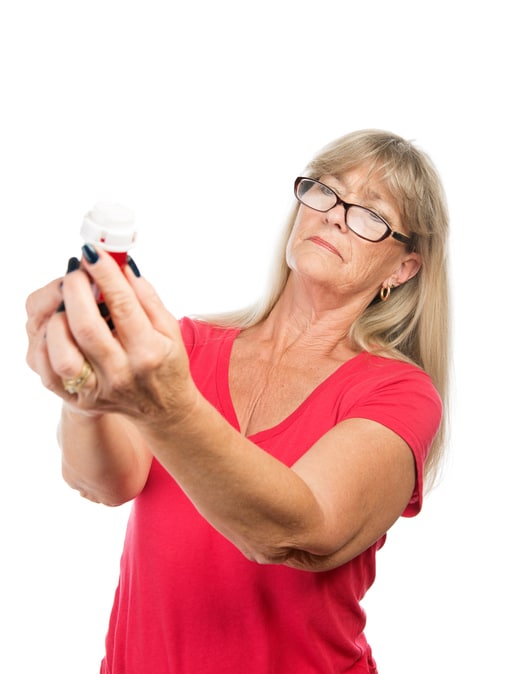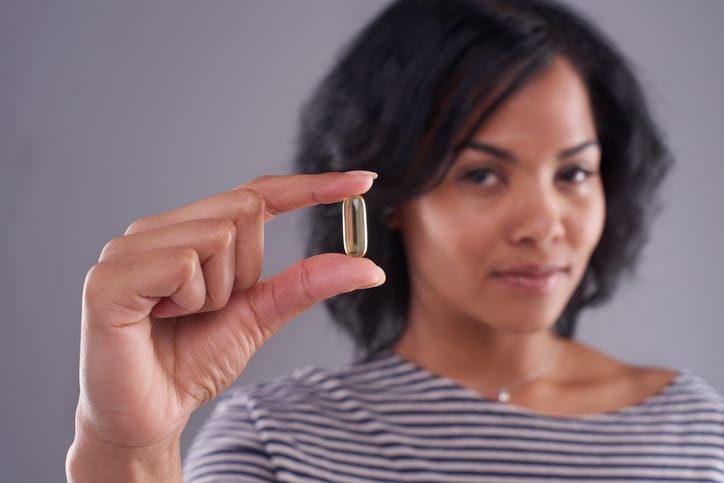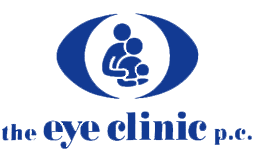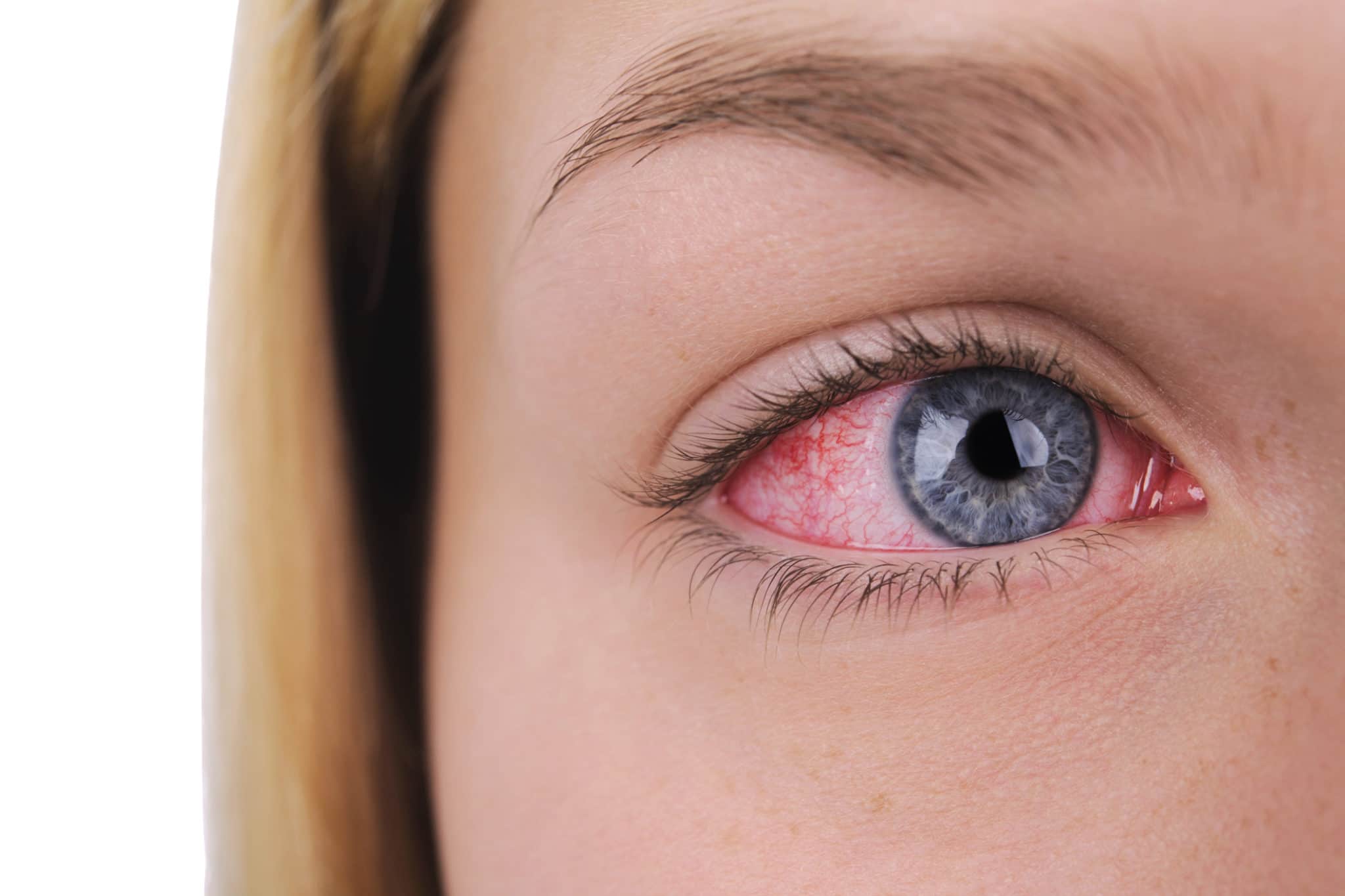Dry Eye Treatment in Portland OR
What is Dry Eye?
Dry eye is a common condition that occurs when the eyes are insufficiently moisturized, leading to itching, redness, and pain from dry spots on the surface of the eye. The eyes may become dry and irritated because the tear ducts don’t produce enough tears, or because the tears themselves have a chemical imbalance. Contact our Portland, OR office if you are suffering from Dry Eyes.
The causes Dry Eyes
In moist Portland, it could seem difficult to develop dry eye, but the causes are usually more internal. Dry eye can develop when the tear ducts are not producing a sufficient number of tears. Or the condition can be due to a chemical imbalance in the tears themselves. Natural tears require a particular chemical balance to lubricate the eyes efficiently. Sometimes, your eyes are actually overproducing tears due to the irritation in your eyes, but the tears aren’t the right consistency to help.
Aging makes us all more likely to develop dry eye — it’s more common in people over the age of 50. It can be a side effect of taking certain medications, a sign of another medical condition, or the results from an injury.
Women tend to get dry eye more than men due to the hormonal changes that take place during pregnancy and menopause. Oral contraceptives can also lead to inconsistent tear ingredients.
These are other causes of dry eye:
- Antihistamines, decongestants, and blood pressure medications
- Environmental conditions such as smoke, wind, and excessive sun
- Eye injury
- Long-term contact lens use
- Eye or eyelid surgery
- Conjunctivitis or keratitis
- Rheumatoid arthritis, diabetes, Sjogren’s syndrome, thyroid disease
What Are The Symptoms Of Dry Eye?
These are the signs and symptoms of dry eye, which usually affects both eyes:
- Stinging, burning, or scratchy sensation in your eyes
- Stringy mucus in or around your eyes
- Sensitivity to light
- Eye redness
- Blurred vision
- A sensation of having something in your eyes
- Difficulty wearing contact lenses
- Difficulty with nighttime driving
- Watery eyes
- Eye fatigue
How long Dry Eyes can last
Everyone has dry eye from time to time. It could be due to an allergy medication you’ve taken in the spring. It could be due to a windy day when out at the coast. You could have stared at your computer screen for too long today. For most people who suffer from occasional or mild dry eye, using over-the-counter artificial tears is all the treatment necessary. These symptoms will pass within a few days at most.
Chronic dry eye is another story. Those patients whose dry eye doesn’t respond to artificial tears need to see Dr. Wilkins or Dr. Donohue. This chronic dry eye could be the result of problems with your eyelids, your tear quality, or that your tears are exiting your eyes too quickly.
When should I contact a doctor for my dry eye?
We all have periods where our eyes can become dry. A windy, dusty summer day at Hood River can do the trick. But when you have prolonged periods where you have the signs and symptoms of dry eye, that’s not normal and we should see you at The Eye Clinic. If you have the following issues for a prolonged period, please contact us:
- Red eyes
- Eye fatigue
- Light sensitivity
- Watery eyes
- Difficulty during night driving
- Blurred vision
- Contact lens discomfort
- End-of-day tension headaches
- Neck and shoulder stiffness
Why Dry Eyes can Cause Blurry Vision

How Is Dry Eye Diagnosed?
Your doctor can diagnose dry eye after a thorough evaluation of your eye and tear production through a Schirmer tear test.
dry eye treatment In Portland, OR
When your dry eye is persistent, Dr. Wilkins, Dr. Donohue, or Dr. Samples will diagnose the cause and provide the appropriate treatment at our Portland, OR office. These are some treatment options.
- Switching medications — Since certain medications, such as anti-anxiety drugs, have a side effect of causing dry eye, simply changing to another available drug can end your dry eye.
- Eyelid problems — For entropion or ectropion, where the eyelids are turned the wrong way, you’ll need to have surgery to correct the eye controlling muscles.
- Treating the disease — If you have rheumatoid arthritis or thyroid disease, treating those conditions can alleviate your dry eye.
- Medications for dry eye — We may prescribe various medications to treat your dry eyes:
- Eyedrops to control cornea inflammation — If you have inflammation on your cornea, this can be controlled with prescription eye drops that contain immune-suppressing medication, called Restasis. Corticosteroids can also be used, but not long term.
- Drugs to reduce eyelid inflammation — If you have inflammation along the edge of your eyelids this can limit the amount of oil secreted into the tears, making them too watery and easily evaporated. Antibiotics will reduce inflammation.
- Eye inserts — If artificial tears don’t work, we may prescribe tiny inserts, hydroxypropyl cellulose (brand name Lacrisert), to be inserted between your lower eyelid and your eyeball. These slowly dissolve, releasing lubricating substances.
- Tear-stimulating drugs — Certain drugs called cholinergic increase tear production.
- Punctal plugs — If your tears are exiting your eyes too quickly, we may opt to partially or completely close your tear ducts. To do this, tiny silicone plugs, known as punctual plugs, are inserted into the ducts. These are removable if your condition changes.
- Unblocking oil glands — Warm compresses can be effective for clearing blocked oil glands in your eyelids with warm compresses.
- Special contact lenses — A newer option for chronic dry eye are contact lenses that protect the eye surface and trap moisture. These are called scleral lenses.
Patient Testimonial
“The Eye Clinic is very professional in all aspects. The ladies at the front desk are there to help you and are very kind and polite. The techs are very thorough in what they do. Also very polite. Dr. Wilcox is the best. He talks to you and listens to you. He always helps you with anything you need. I would recommend The Eye Clinic to everyone.”
What can I eat to help with dry eye?
We talk about fish oil elsewhere on this page, but let’s get into some of the foods you can eat to help keep the oil content of your tears in good balance.
- Omega-3 fatty acids — This is how fish oil helps with dry eye. What foods have lots of omega-3 fatty acids? Flaxseed, palm oil, soybean oil, chia seeds, walnuts, salmon, tuna, and fish oil supplements.
- Vitamin A, B6, B12, C, and E — You want to boost the levels of these vitamins, as deficiencies in all of these have been shown to lead to dry eye.
oVitamin A is found in pumpkins, apricots, carrots, tomatoes, spinach, dairy products, and liver.
oVitamin B6 is found in potatoes, kale, salmon, goose, mackerel, and sardines.
oVitamin B12 can be found in beef liver, calf’s liver, pork liver, and mackerel. It occurs in smaller amounts in daily products and eggs.
oVitamin C is found in broccoli, berries, citrus, peppers, and Brussels sprouts
oVitamin E is found in wheat germ oil, sunflower oil, spinach, peppers, mangos, mackerel, and red currants.
- Lutein and zeaxanthin — Lutein and zeaxanthin are antioxidants that help prevent many chronic eye diseases including dry eye. They can be found in leafy greens such as kale, spinach, and romaine lettuce.
- Zinc — Zinc is important for transporting vitamin A from the liver to the retina. Zinc is found in whole grains, dairy, sweet corn, peas, lentils, and nuts.
Is Fish oil an effective treatment?

How much fish oil Is Needed?
You can get fish oil in your diet, and most of us do here in Portland. Fatty fish are full of the stuff: salmon, halibut, striped sea bass, albacore tuna, and catfish are all good sources. As a supplement, research studies on fish oil have advocated 180 milligrams of EHA and 120 milligrams of DHA taken twice daily. Higher doses of fish oil supplements have been shown to have some harmful side effects, so don’t overdo it.
It’s a good idea to first talk with the team at The Eye Clinic about your dry eye and taking fish oil supplements.
Is there something I can do to help keep my oil glands clear?
Blocked Meibomian glands can be behind dry eye, as they cause an imbalance in your tear makeup. Here’s a way you can help keep those glands open.
When you’re in the shower, take a washcloth and get it quite warm under the shower water. Now fold it lengthways and hold it on your eyelid or eyelids (if it is long enough). Hold it there for at least 30 seconds and apply light pressure. This heat can liquefy viscous meibum and open the glands. You can also massage the glands lightly with the cotton tip of a swab at the sink.
This may not fully clear blocked Meibomian glands, but it can open glands that are moving toward becoming blocked.
way you can help prevent the development of Dry Eye
For many people, managing their environment or some lifestyle changes can really help with dry eye. Here are some suggestions from the team at The Eye Clinic:
- Redirect air blowing in your eyes — Car vents, hair dryers, air conditioners can all blow air directly onto your eyes helping evaporate some of the necessary lubrication.
- Get a humidifier — Moisture and Portland aren’t usually too far apart, but dry indoor heated winter air can be as dry here as anywhere. A humidifier in winter can help.
- Wraparound sunglasses — Look for sunglasses that give the sides of your eyes some coverage.
- Take eye breaks during long tasks — If you’re doing a task that requires visual concentration, such as reading or other up-close work, take eye breaks. Close your eyes, look away, focus on distant objects for 20 seconds at a time.
- Lower your computer screen — If your computer screen is above eye level, you’ll open your eyes wider to view the screen, which creates more evaporation.
- Stop smoking and avoid smoke — Smoke worsens dry eye symptoms.
- Use artificial tears regularly — If you have chronic dry eye, use artificial tears even when your eyes feel fine to keep them well lubricated.
What are the risks of leaving dry eye untreated?
It is important for patients with this condition to take special care of their eyes in order to alleviate symptoms and prevent complications. Patients with this condition often experience irritating symptoms and can suffer from more serious vision damage if this condition is left untreated.
Schedule A Consultation in Portland, OR
Are you suffering from dry eyes? We’re here to help! Contact us today at 503-297-4718 to schedule your appointment!



